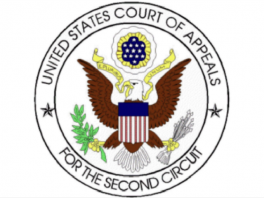Unappealing? A Higher Court Sides With The SEC Against Judge Rakoff

By Gregg Fields, Harvard University
CAMBRIDGE, MA: 5 May 2014 - As the New York Times described it Wednesday: “And to critics of Wall Street, the judge developed something of a celebrity status, becoming a symbol of the effort to crackdown on Wall Street misdeeds.”
But the Times reference was in a story about the U.S. Court of Appeals for the Second Circuit overturning Rakoff on Wednesday. It would be understandable, in that context, for Rakoff’s supporters to conclude that the good guy has lost.
Rakoff, a federal judge in the Southern District of New York, threw out the prepackaged settlement between the SEC and Citigroup in 2011. His reasoning: he had no way of knowing whether the amount, or the terms, were fair. The reason: the SEC did almost no discovery regarding the facts of the case. The allegations were that a Citigroup subsidiary had essentially bet against its own investors in a securities offering related to debt backed by subprime mortgages.
The lack of investigation, Rakoff wrote, meant he had no real facts with which to assess the fairness of the settlement. “An application of judicial power that does not rest on facts is worse than mindless, it is inherently dangerous,” Rakoff wrote. “If its deployment does not rest on facts—cold, hard, solid facts, established either by admissions or by trials—it serves no lawful or moral purpose and is simply an engine of oppression.”
In that context, the settlement was an abdication of regulatory responsibility by the SEC, he said. “In much of the world, propaganda reigns and truth is confined to secretive, fearful whispers,”Rakoff wrote. “Even in our nation, apologists for suppressing or obscuring the truth may always be found. But the SEC, of all agencies, has a duty, inherent in its statutory mission, to see that the truth emerges.”
But Rakoff’s ruling was quickly appealed—ironically, by both plaintiffs and defendants. A group of 19 legal scholars filed a friend of the court brief in support of Rakoff. “The requirement of judicial review serves as an independent check on settlements that may meet the needs of the settling parties, but do not serve the public interest because they neither inform the public of the truth of the allegations nor deter future violations,” they wrote.
“Citigroup and its affiliates have been enjoined from violating securities laws four times since 2000, yet have not been the subject of a contempt proceeding,” the scholars added.
Yet the appeals court had previously indicated it believed Rakoff had overstepped his authority. And in Wednesday’s ruling, it concluded that the practical convenience of consent agreements trumps whatever might be unearthed at a trial.
“It is an abuse of discretion to require, as the district court did here, that the SEC establish the ‘truth’ of the allegations against a settling party as a condition for approving the consent decrees,” the appeals court wrote. “Trials are primarily about the truth. Consent decrees are primarily about pragmatism.”
Certainly, it is understandable why the SEC and its regulatory brethren, such as the Commodity Futures Trading Commission, would seek pragmatism. Litigation is wildly expensive, and the SEC and CFTC are often woefully outmatched in terms of resources.
And not surprisingly, the SEC voiced support for the appeals court. "We are pleased with today’s ruling by the Second Circuit Court of Appeals reaffirming the significant deference accorded to the SEC in determining whether to settle with parties and on what terms,” Andrew Ceresney, director of enforcement, said in a statement. “While the SEC has and will continue to seek admissions in appropriate cases, settlements without admissions also enable regulatory agencies to serve the public interest by returning money to harmed investors more quickly, without the uncertainty and delay from litigation and without the need to expend additional agency resources."
Furthermore, both are funded by Congress, which is dependent upon the financial sector for campaign contributions. Year in and year out, the financial sector is at or atop the list of campaign donors as well as lobbying expenditures.
Complaints of regulatory capture—a common indicator of institutional corruption—are rife. In his recent bestseller Flash Boys, Michael Lewis’s protagonists are rebuffed by the SEC when they voice their suspicions about abuses by high-frequency traders. Later, they conduct private research and find that over 200 former SEC employees had decamped to work for high frequency trading firms.
One of the leading criticisms of the regulators following the financial crisis was that virtually no executives were prosecuted. Institutions whose behaviors led to the collapse weren’t held accountable but, in fact, were bailed out by taxpayers.

